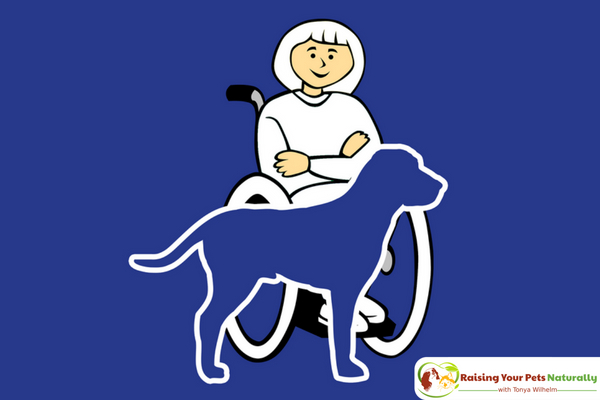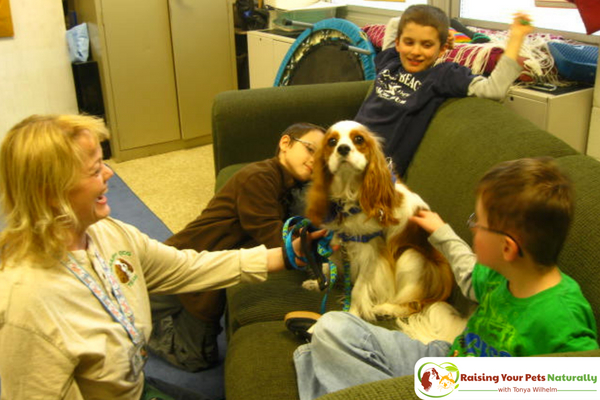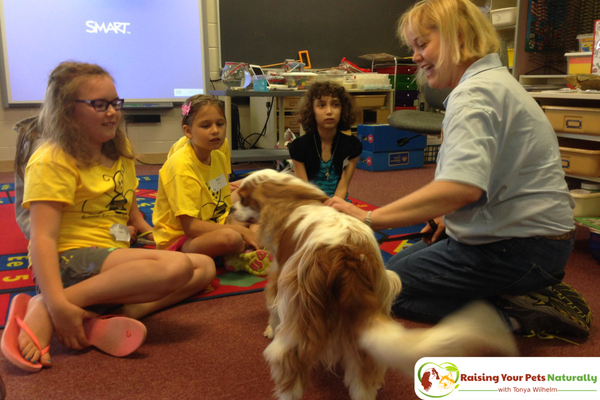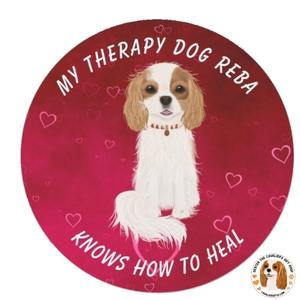Google Adsense—>

Therapy Dogs and Therapy Dog Training.
Is Your Dog a Good Therapy Dog Candidate?

Have you ever wondered how to make your dog a therapy dog? Before I write about that topic, I wanted to provide a little background information on therapy dogs vs. service dogs. There is a lot of confusion about what a therapy dog is, isn’t, and what access he may have. As a side note, I started my career training assistance dogs and therapy dog teams.
Watch my video tips and don’t forget to subscribe!
What is a Service Dog?
A service dog is actually classified as an assistance dog. These dogs are trained to perform specific tasks for their people to improve the person’s independence. Three classifications of assistance dogs are guide dogs for the visually impaired, hearing dogs, and service dogs. Services dogs provide specific tasks such as mobility assistance, alerting to seizures, picking up dropped items, etc. Assistance dogs in the United States have full access to places that are open to the public, assuming they are under control at all times.
According to the Americans with Disabilities Act (ADA), “Service animals are defined as dogs that are individually trained to do work or perform tasks for people with disabilities. Examples of such work or tasks include guiding people who are blind, alerting people who are deaf, pulling a wheelchair, alerting and protecting a person who is having a seizure, reminding a person with mental illness to take prescribed medications, calming a person with Post Traumatic Stress Disorder (PTSD) during an anxiety attack, or performing other duties. Service animals are working animals, not pets. The work or task a dog has been trained to provide must be directly related to the person’s disability. Dogs whose sole function is to provide comfort or emotional support do not qualify as service animals under the ADA.”

What are Therapy Dogs?
Therapy dogs provide a different kind of support. They are trained to provide comfort, love, and sometimes even entertainment to others, not just to the handler. You may see therapy dogs at work in hospitals, nursing homes, courtrooms, schools, and during a tragic event to provide comfort to service workers or victims.
Unlike assistance dogs, the law does not give public access rights to therapy dogs. Therapy dog teams must therefore have prior agreements with any hosting facility in order to be granted visiting rights. Most of these will require some sort of therapy dog certification or registration prior to visits.

Is Your Dog Suited for Therapy Dog Work? 4 Things to Consider
There is a lot to consider when deciding if going down the therapy dog route is in your dog’s best interest. I’ve worked with a lot of inspiring therapy dog teams in my career, and not every dog wants to be a therapy dog. I feel it’s important to honor your dog’s wishes and not to try to turn him into something he isn’t.
Sociability
Does your dog enjoy people? Are strangers just friends he hasn’t had the chance to meet? Or does your dog prefer his tight-knit circle of friends? One of the main aspects of a visiting therapy dog is interacting with all kinds of strangers. Young, old, big, tall, loud, quiet.
Confidence
How confident is your dog in new situations and places? How is he going to react when the emergency alarm goes off and the staff is rushing by him with medical equipment? What about those slick floors and tight spaces? Does he take new situations in stride with a little guidance, or does he get stressed in unusual circumstances?

Manners and Training
How is your dog’s loose leash walking skills? Is he a gentleman and doesn’t jump up for attention, steal food (or pills) off the floor, and takes treats gently? Does he take your training cues and gestures with ease, or is it hard to get him to listen around distractions or new places?
Your Sociability
As much as we may think it’s all about the dog, we are the guiding force in good therapy dog interactions. Sometimes people just want to talk to you and look at your dog. How do you handle unusual situations, and are you able to help your dog succeed during his visits and coach both the visiting person and your dog at the same time?
Being a therapy dog team is a great adventure, providing all involved are well-suited for this important job. If you find that your dog or you are not good therapy dog candidates, don’t fret. There are many other ways to bond with your dog.
Your questions or comments are welcome below.
Are you looking for even more ways to stay up to date with Raising Your Pets Naturally? Sign up for the newsletter for more tips and promotions. Don’t forget to be social and Like, Follow and Subscribe. Comments below are always welcome.
Facebook Twitter Pinterest Instagram YouTube
 |
 |
 |
 |
Google Adsense—>






